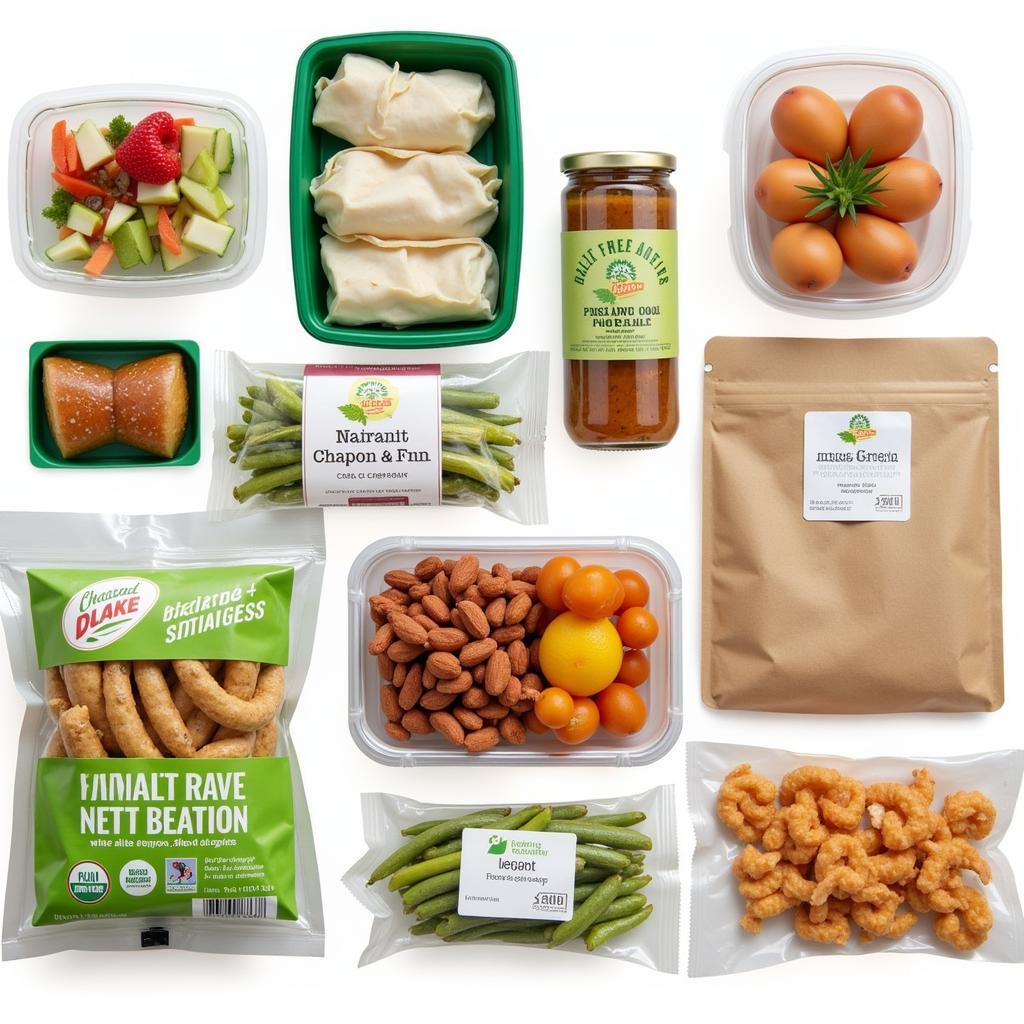The global food system is undergoing a significant transformation, driven by a growing awareness of the environmental impact of traditional food production. This shift is giving rise to “Green Food Industries,” a sector dedicated to developing sustainable and eco-friendly practices across the entire food supply chain. From reducing greenhouse gas emissions to minimizing waste and conserving water, green food industries are revolutionizing how we produce, process, package, and consume food.
Understanding the Rise of Green Food Industries
Several factors contribute to the increasing prominence of green food industries. Consumers are becoming more conscious of the environmental and ethical implications of their food choices. This awareness has fueled a demand for sustainably sourced, ethically produced products, prompting food businesses to adapt. Additionally, governmental regulations and international agreements are pushing for stricter environmental standards in the food sector, further encouraging the adoption of green practices.
Key Practices Defining Green Food Industries
Green food industries encompass a wide array of practices, all aimed at reducing the environmental footprint of food production and consumption. Let’s delve into some of the key areas:
1. Sustainable Agriculture
At the heart of green food industries lies sustainable agriculture. This approach prioritizes practices that minimize environmental damage while ensuring long-term agricultural productivity. Key elements include:
- Organic Farming: Eliminating synthetic pesticides, herbicides, and fertilizers, organic farming promotes biodiversity, soil health, and reduces water pollution.
- Precision Farming: Utilizing technology like sensors, GPS, and data analytics to optimize resource use, precision farming aims to enhance yields while minimizing inputs such as water and fertilizer.
- Regenerative Agriculture: Going beyond sustainability, regenerative agriculture focuses on rebuilding soil health, improving water cycles, and enhancing biodiversity, ultimately sequestering carbon from the atmosphere.
2. Sustainable Food Processing
Green food industries extend beyond the farm, encompassing sustainable practices in food processing as well. This includes:
- Energy Efficiency: Implementing energy-efficient technologies and processes within factories and processing plants to reduce overall energy consumption and greenhouse gas emissions.
- Water Conservation: Adopting water-saving techniques throughout the production process, treating and reusing wastewater to minimize water usage and reduce strain on water resources.
- Waste Reduction: Minimizing food loss and waste throughout processing by optimizing production processes, utilizing byproducts, and implementing efficient packaging solutions.
3. Sustainable Packaging
Packaging plays a crucial role in the food industry, and green food industries are exploring innovative solutions to reduce packaging waste.
- Plant-Based Packaging: Shifting away from traditional plastic packaging by utilizing biodegradable and compostable alternatives derived from plant-based materials like sugarcane, cornstarch, and mushroom fibers.
- Edible Packaging: Developing edible films or coatings made from seaweed, proteins, or lipids to protect food products, reducing packaging waste entirely.
- Reusable Packaging: Implementing systems for reusable packaging, particularly in food service and delivery, to minimize single-use packaging and promote a circular economy.
4. Food Waste Reduction
Addressing food waste is a critical aspect of green food industries. Significant efforts are focused on:
- Supply Chain Optimization: Utilizing technology and data analytics to improve supply chain efficiency, reduce transportation distances, and minimize food spoilage during transportation.
- Consumer Education: Raising awareness among consumers about food waste, providing tips on proper food storage, and encouraging mindful consumption habits.
- Food Upcycling: Transforming food byproducts and surplus food into new products, such as snacks, ingredients, or animal feed, to reduce food waste and add value to the supply chain.
 Sustainable Packaging Solutions in Green Food Industries
Sustainable Packaging Solutions in Green Food Industries
The Future of Green Food Industries
The green food industry is not just a trend; it represents a fundamental shift toward a more sustainable and resilient food system. As technology advances and consumer demand for eco-friendly options continues to rise, we can expect to see even more innovative solutions emerge within this sector. From lab-grown meat and vertical farming to blockchain technology for supply chain transparency, the future of food is undeniably green.
FAQs about Green Food Industries
1. Are green food products more expensive?
While some green food products might have a slightly higher price tag, the cost difference is narrowing as these industries scale up. Furthermore, the long-term benefits for the environment and public health outweigh the potential price premium.
2. How can I support green food industries?
You can support green food industries by making conscious choices at the grocery store, such as opting for locally sourced, organic produce, choosing products with minimal packaging, and reducing food waste at home.
Need Help Navigating the World of Green Food?
Contact us! We’re here to help you make informed choices for a healthier planet.
Phone: 02437655121
Email: [email protected]
Address: 3PGH+8R9, ĐT70A, thôn Trung, Bắc Từ Liêm, Hà Nội, Việt Nam.
Our dedicated customer support team is available 24/7 to assist you.